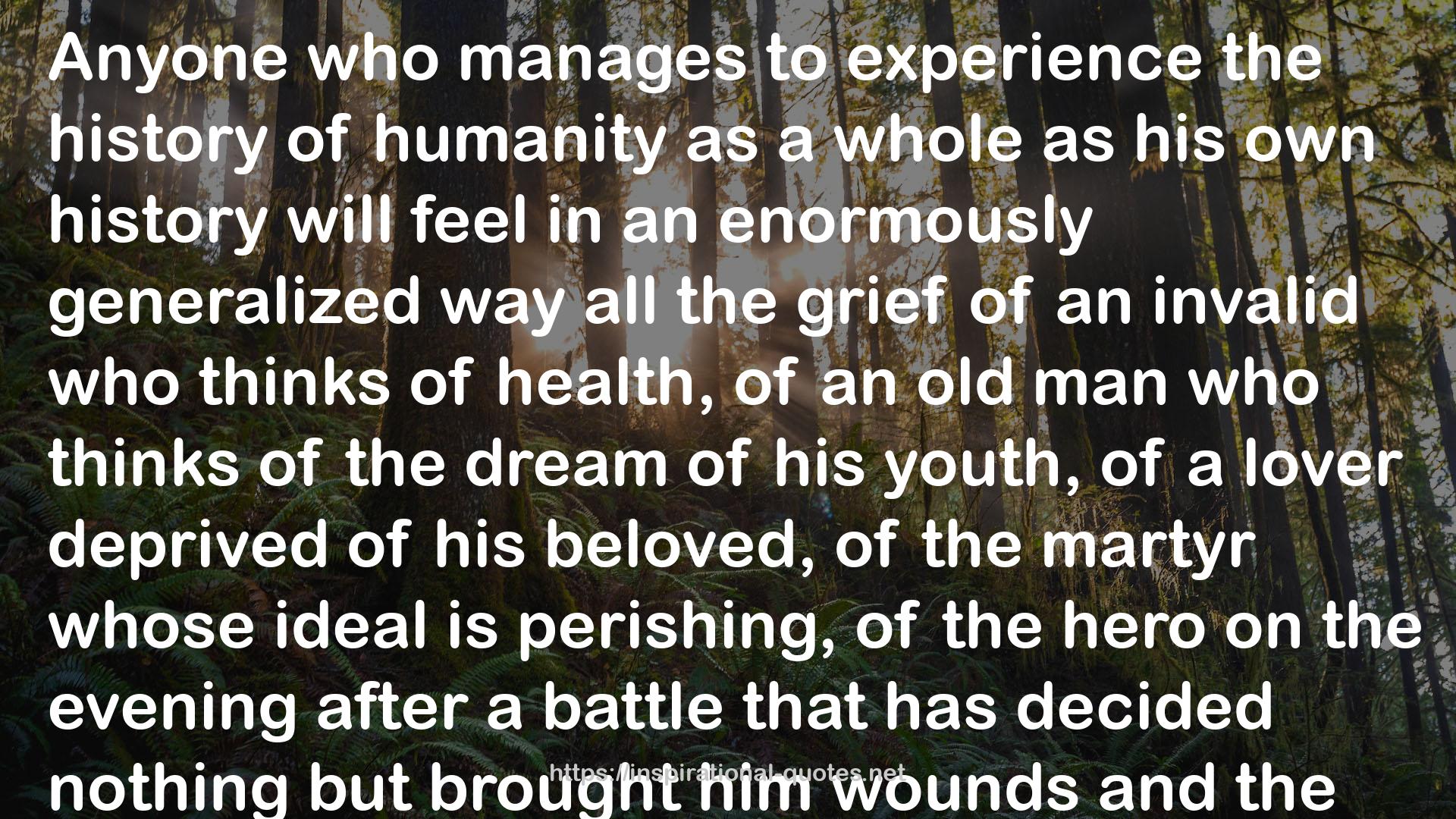" Anyone who manages to experience the history of humanity as a whole as his own history will feel in an enormously generalized way all the grief of an invalid who thinks of health, of an old man who thinks of the dream of his youth, of a lover deprived of his beloved, of the martyr whose ideal is perishing, of the hero on the evening after a battle that has decided nothing but brought him wounds and the loss of his friend. But if one endured, if one could endure this immense sum of grief of all kinds while yet being the hero who, as the second day of battle breaks, welcomes the dawn and his fortune, being a person whose horizon encompasses thousands of years, past and future, being the heir of all the nobility of all past spirit - an heir with a sense of obligation, the most aristocratic of old nobles and at the same time the first of a new nobility - the like of which no age has yet seen or dreamed of; if one could burden one’s soul with all of this - the oldest, the newest, losses, hopes, conquests, and the victories of humanity; if one could finally contain all this in one soul and crowd it into a single feeling - this would surely have to result in a happiness that humanity has not known so far: the happiness of a god full of power and love, full of tears and laughter, a happiness that, like the sun in the evening, continually bestows its inexhaustible riches, pouring them into the sea, feeling richest, as the sun does, only when even the poorest fishermen is still rowing with golden oars! This godlike feeling would then be called - humaneness. "
― Friedrich Nietzsche , The Gay Science
